Mask Messages
A mask requirement expands prisoners’ opportunities for personal expression.
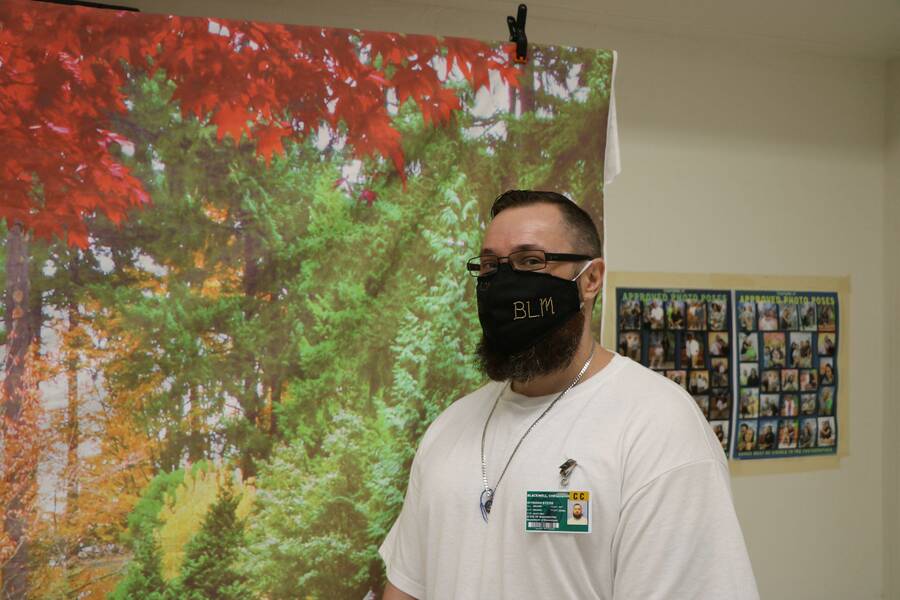
IN THE WASHINGTON STATE PRISON where I live, prisoners are all issued the same clothing, making opportunities to express personal style or any form of uniqueness totally unheard of. But the recent introduction of masks into a world of bland light browns and grays has become a way for prisoners to express political views, display cultural pride, and show off their creative sides.
Prisoners are required to wear masks all of the time when out of the cell. The state has given out a handful of plain cloth masks throughout the pandemic; prisoners who want more masks or more creative masks must find their own materials. As is often true for creative expression in prison, prisoners have been forced to look high and low to find useful materials, like T-shirts or any other swathes of fabric that might be available at their jobs, to express their vision. Even scraps from the trash have been recycled and made to serve a purpose.
The Department of Corrections’ pandemic response policies have stripped us of our contact visits, many of our educational and enrichment programs, and other privileges. And yet the decorative masks are a reminder that we have not been stripped of our political views, our passions, or our ability to express who we are and what we enjoy. These photos show me and several of my fellow prisoners in our masks. Most were taken on a computer that allows incarcerated individuals to send photos to our families through the JPay prison technology service; prisoners’ families then sent the photos directly to me via JPay.
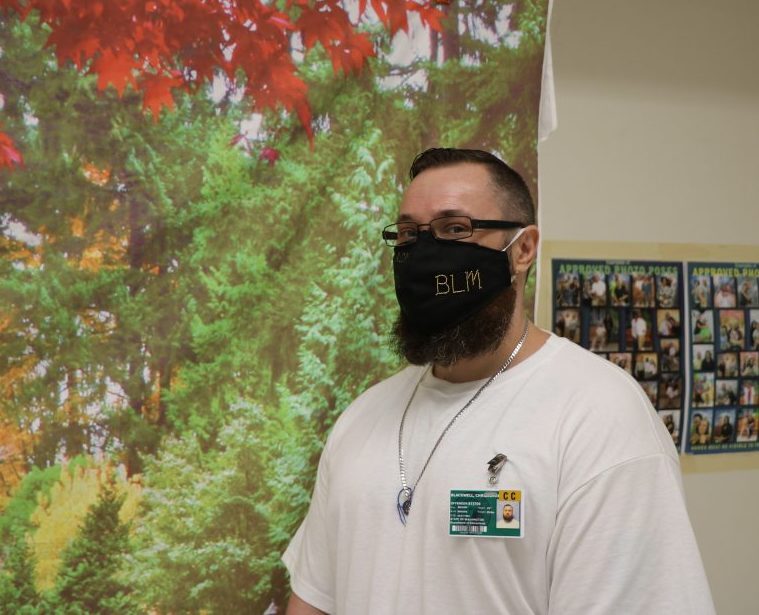
I have, along with many others, chosen to wear a mask that says “Black Lives Matter” in gold lettering on black fabric. I hand sewed this mask and attached elastic from a sleep mask sold in the prison store. (The above photo was taken by a Department of Corrections official at my recent wedding.) As a white man who grew up in an all-Black community in Tacoma, Washington, I feel it’s important to show there is support behind these walls for the movement, especially since the majority of incarcerated people come from impoverished communities of color, which are the most targeted by police and the corrupt criminal justice system.
Guards have frequently asked why I wear the mask. Many look at it with disgust, seeing it as a threat, rather than a demand for equality. But not all guards feel disturbed by the BLM movement: Though it’s still much more common to see guards wearing “Make American Great Again” masks, at least one Black female guard came in to work with a BLM mask on. This is another strange part of this intrusion of self-expression into the prison space: We now get insight into our guards, who also wear masks that advertise their passions, from rock bands to political movements to sports teams. Some guards wear gag masks, like those depicting a beard or a crazy facial expression, in order to introduce some levity in an otherwise challenging environment.
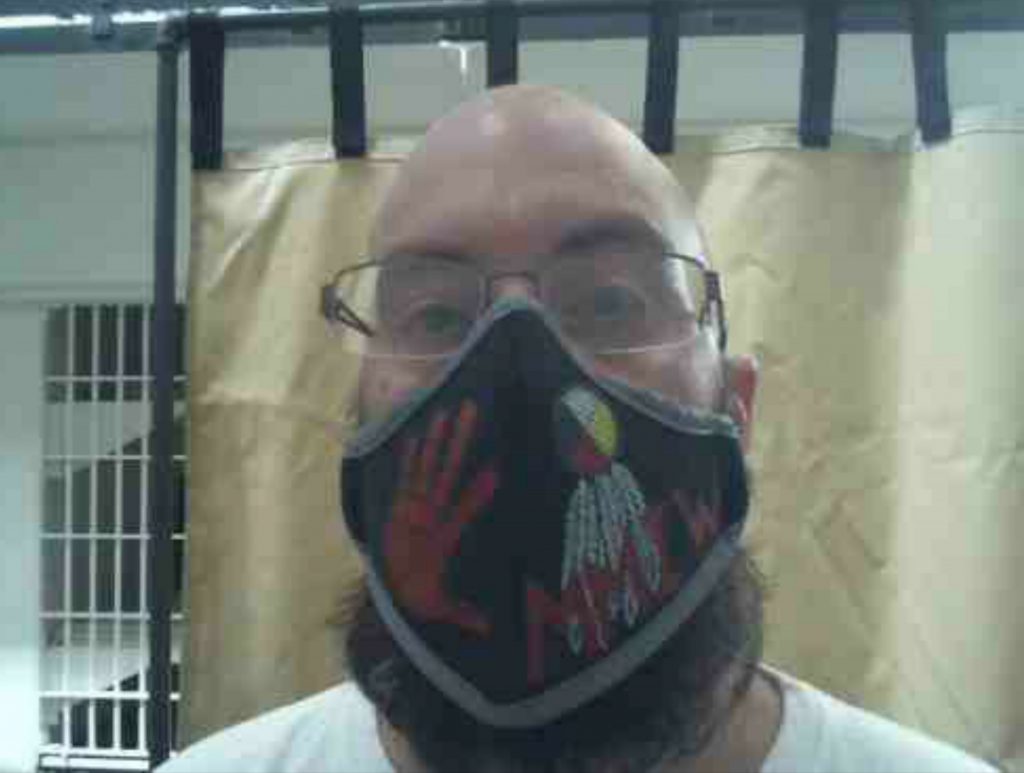
BLM is not the only political movement that prisoners are wearing on their faces. Augustus, who is an enrolled member of the Okanagan Indian Band, wants to bring attention to the Missing and Murdered Indigenous Women movement. “In Montana, Native women make up just 5% of the population, yet they account for 30% of all missing and murdered women,” he told me. “I recently watched a special about this and it left me feeling anger, sadness, and frustration. I knew this was something I wanted to stand behind. Today I am proud to walk around the prison with a mask that brings attention to this important movement.”
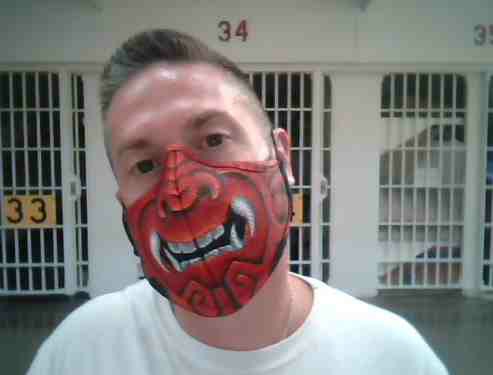
Tommy, a talented painter, has created various masks with horror or gothic themes: zombies with grotesque rotting faces, skeleton jaw lines, fanged mouths. “We all wear the same stuff—I don’t want to look like everyone else. I want to express my style as an individual,” he said. Another prisoner, Brandon, who is also a painter, said, “COVID is so serious. I painted my mask to make something fun.”
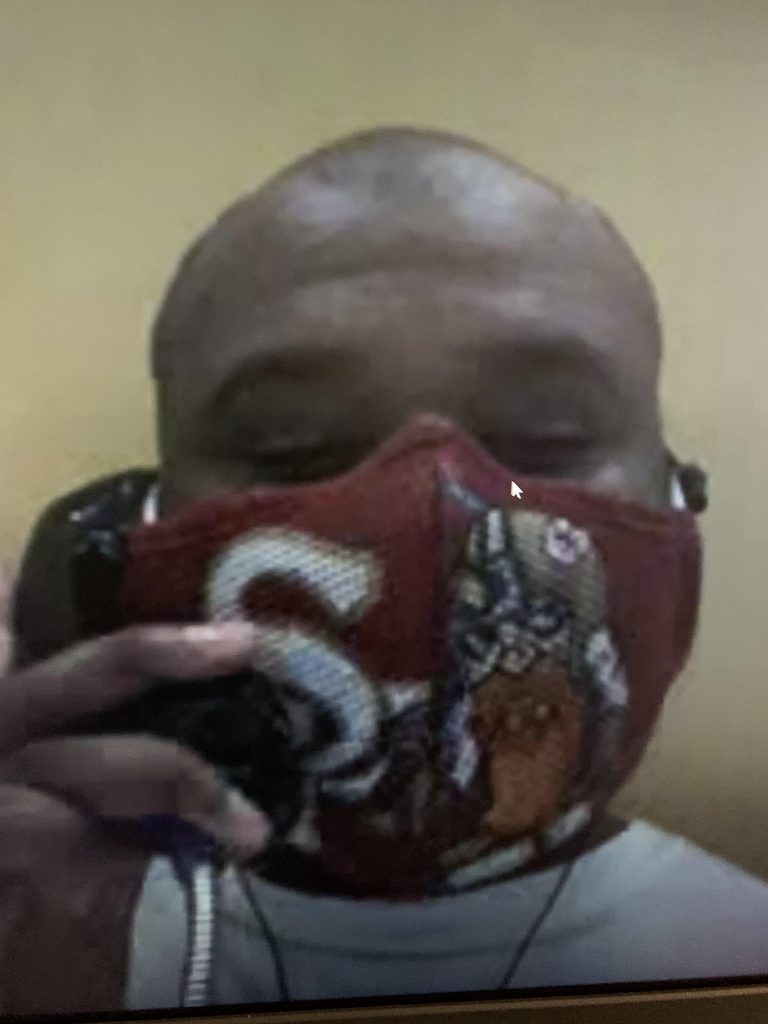
Prisoners are deeply passionate about their sports teams, and masks that celebrate a favorite team are common. Charles, pictured, is one brave soul proudly sporting his San Francisco 49ers mask deep in Seattle Seahawk territory. “I was born in the Bay Area. I love my hometown, so I can’t do nothing but rep the Niners,” he told me.
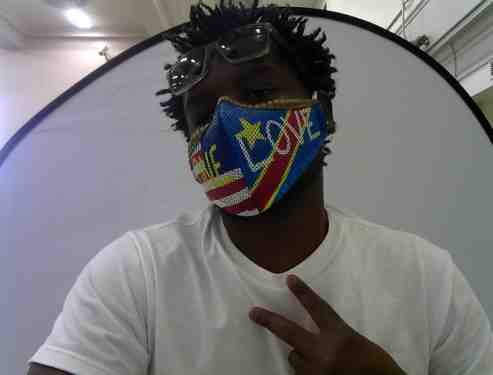
Some prisoners choose simply to show their pride in their native countries. JoJo was born in the Democratic Republic of Congo and is also an American citizen. He wears a mask that displays both flags and the words “one love.” “It is important to show that we’re all in this together,” he told me. “It doesn’t matter where you are from, we are all human facing the same struggles.”
It has been a privilege to get to know the many individuals I spend my life with. And, living around hundreds of people, it can be difficult to get to know them all. Masks have changed that, in a sense. If there’s a silver lining to be found during these times, it’s that we can now share a small piece of who we are with one another.
Christopher Blackwell is serving a 45-year prison sentence in Washington state. He is a contributing writer at Jewish Currents and contributing editor at The Appeal and works closely with Empowerment Avenue. He co-founded the organization Look2Justice.
